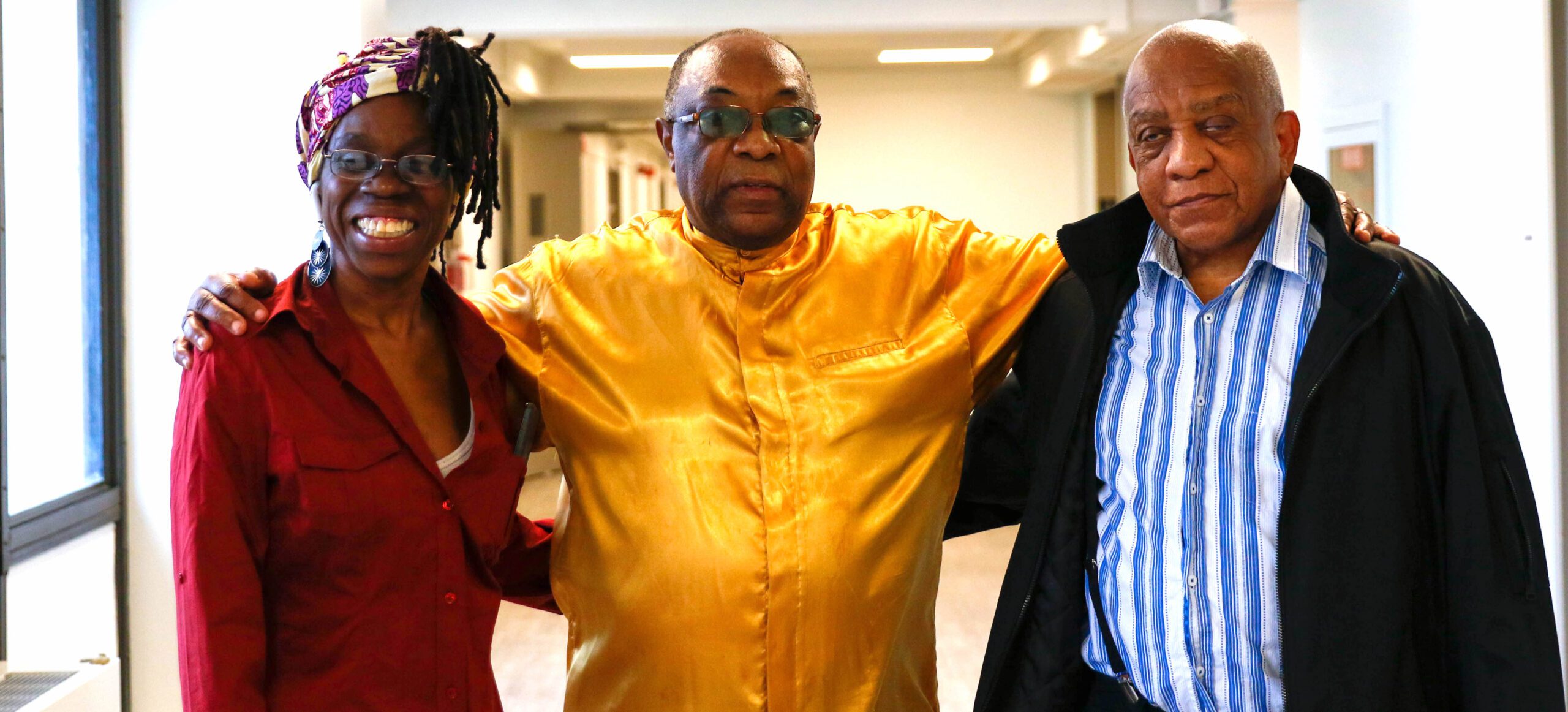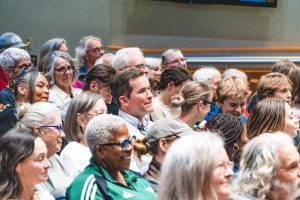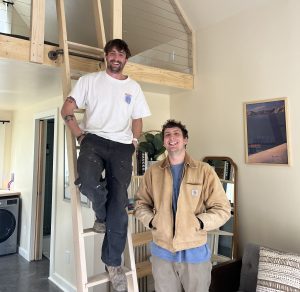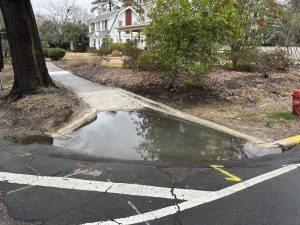On Dec. 23 and 24, a blackout at JJ Henderson Senior Apartments left residents confused, afraid and at risk. Now Durham Housing Authority officials say they are working with the building managers, California Commercial Investment Companies, to improve response in future emergencies. But communication with residents has been scarce, and some details about what happened during the blackout remain unclear.
At a virtual meeting Feb. 14, members of DHA’s Resident Services and Operations Committee described improvements to the building’s electronic locks, possible new emergency charging stations and plans for improved communications. They also pushed back on residents’ statements that no one checked on them until Dec. 27, saying that someone did check on the building during the blackout.
JJ Henderson is an apartment community that provides affordable housing for seniors and disabled people. During a blackout on Dec. 23 and 24, building residents said their health equipment, such as heart monitors, equipment for chronic obstructive pulmonary disease, and electric wheelchairs, stopped working. The electronic locks to the building failed, they said, allowing strangers to enter. They said that the lights went out in their apartments, and the heat failed in some units. And, they said that no one from building management or DHA checked on them for several days.
“I was scared to death,” Pearlie Williams, a resident of JJ Henderson, said in an interview. “I was like, ‘Help me, what is going on?’”
News of the JJ Henderson blackout and its handling was first reported by The 9th Street Journal on Feb. 3, after residents brought their concerns to a City Council work session.
CCI has not responded to multiple requests for comment.
At the recent DHA meeting, Anthony Snell, the director of development at the housing authority, said that the building’s electronic locks, which failed during the outage, are now connected to the building’s emergency generator. He also said that he and CCI would explore creating emergency charging stations for residents’ medical devices and telephones.
Originally built in the 1970s, JJ Henderson was recently renovated by DHA in partnership with other companies, including CCI. The $31.2 million renovation, part of DHA’s Downtown and Neighborhood Plan, utilized a $2.9 million loan from the City of Durham.
When the building reopened in October, DHA Chief Executive Officer Anthony Scott hailed the JJ Henderson renovation project as a “model” for affordable housing in Durham. But with the renovation came a transition in management from DHA, which managed the building for many years, to CCI, a private company. Some residents are unhappy with how CCI handled the blackout, and three of those residents reported their concerns to the City Council at a work session Jan. 19.
Two months after the blackout, some aspects of what happened remain unclear, and communication with residents has been sparse.
The blackout was announced to residents over the JJ Henderson PA system, according to DHA. However, some residents say they didn’t hear the announcement. Scott said at the meeting that he planned to verify that the system worked.
Residents also say that no one from building management or DHA came to check on them until Tuesday, Dec. 27, three days after the outage. But at the meeting, Scott said that according to CCI management, someone did visit the building during the blackout “to check on the building and make sure things were okay.” However, Scott said he was concerned about residents’ complaints.
“A part of the complaint that I think has some merit was just the notion that no one checked on them,” Scott said at the meeting. “CCI and I are going to have some continuing conversations to make sure that there is a true check in on our residents when something like that happens. And again they said that someone did go to the building, so everyone who is there is not necessarily going to see the person.”
At the meeting, DHA representatives also discussed whether residents attempted to contact management during the blackout. Sanders said JJ Henderson management told her they received no emails or voicemails from residents during the blackout. She said she was not aware of any residents connecting with DHA via Facebook, text, or email during the power outage.
Scott said that he and Sanders would follow up to make sure no residents attempted to contact DHA through its emergency hotline.
Scott also reiterated that the building’s backup generator provided emergency lighting, elevator use and heating in apartments during the blackout. However, some residents say that heat failed in their apartments. Residents also say although hallway lights functioned, apartments were dark.
The 9th Street Journal requested further information from DHA and CCI about their response to residents’ complaints. CCI representatives did not respond to the request or to earlier requests for comment.
DHA issued an emailed statement but did not elaborate on improvements further. The statement urges residents facing an emergency requiring “immediate attention” to call 911, and if their heat fails, to call a separate emergency number.
In the email, DHA also stated that “the claim that no one checked on the residents for several days is not accurate.” DHA provided no further details about any checks that may have taken place during the blackout.
Rafiq Zaidi, a 17-year-long resident of JJ Henderson, was one of three residents who spoke at the City Council work session on Jan. 19 about the blackout. He recently met with Scott to discuss the power outage.
Zaidi said he was only aware of a few steps building management have taken to respond to the blackout or to discuss it with residents.
“[CCI] did put up a poster on the bulletin board… in reference to resources that we can contact like the fire department, the disaster services, and EMS, ambulance—which we already had,” he said. “Other than that we haven’t had any communication.”
Zaidi added that the building management recently planted new shrubbery and grass in front of JJ Henderson.
“They have made the outside what we would call, ‘presentable,’” he said.
CCI also recently held a Valentine’s Day event for residents, with catered services, Zaidi said.
Neither Zaidi, nor Williams nor Daniel Marshburn have been contacted by CCI to discuss their concerns since they reported their blackout experiences at the City Council work session, they said. All three are longtime residents of JJ Henderson.
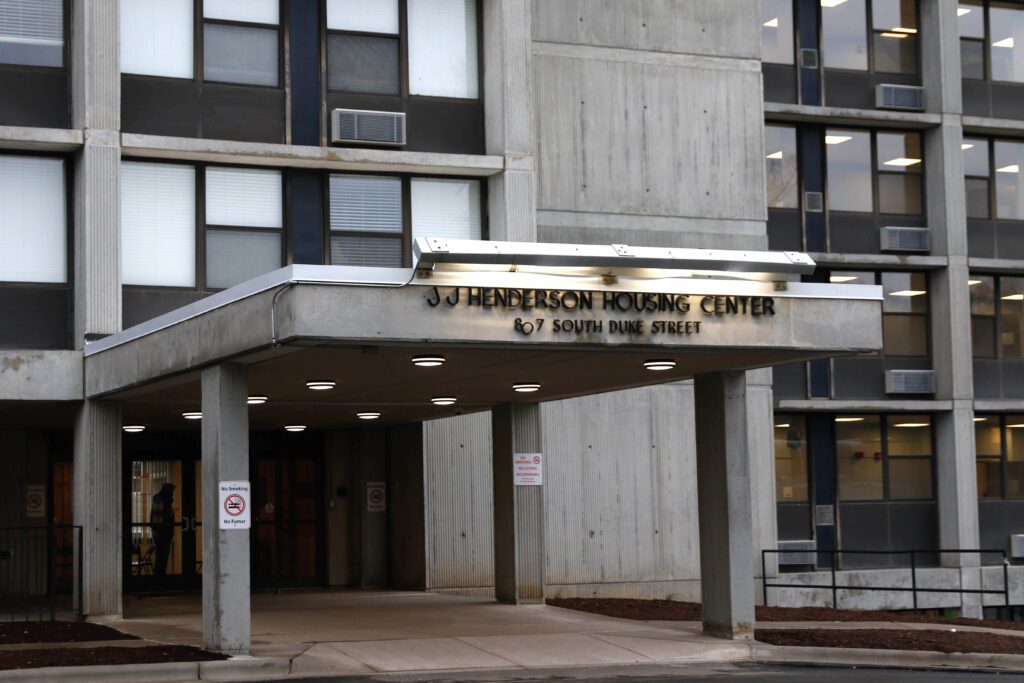
“I’m hoping that there will be more unification between the staff and the residents,” she said, “We used to have a thing called the resident council, where the people address their issues with the staff. And my hoping is that we get that portion back.”
Zaidi expressed similar concerns, saying that the building no longer holds general meetings where residents could air grievances with staff.
“Prior to CCI coming in, being in partnership with DHA, we used to have monthly meetings, which we would call resident council meetings,” he said, “We would be able to talk to staff. And if you have any grievances, we would be able to let staff know what those grievances were.”
Despite some progress at the building, such as the improvements to the building locks, Zaidi worries that changes will stop once the public is less focused on this issue.
“Well, from our experiences in reporting conditions here with DHA for the last 17 years… they will respond, and once they think that everything is over with, the complaints have simmered down, there is no light being shined on what’s happening, they’ll go back to usual,” he said.
Above: Pearlie Williams, Rafiq Zaidi and Daniel Marshburn, residents of JJ Henderson Senior Apartments, have questioned the handling of a Christmas blackout in their building; JJ Henderson reopened in October following a $31.2 million renovation. Photos by Abigail Bromberger — The 9th Street Journal
Chloe Nguyen

